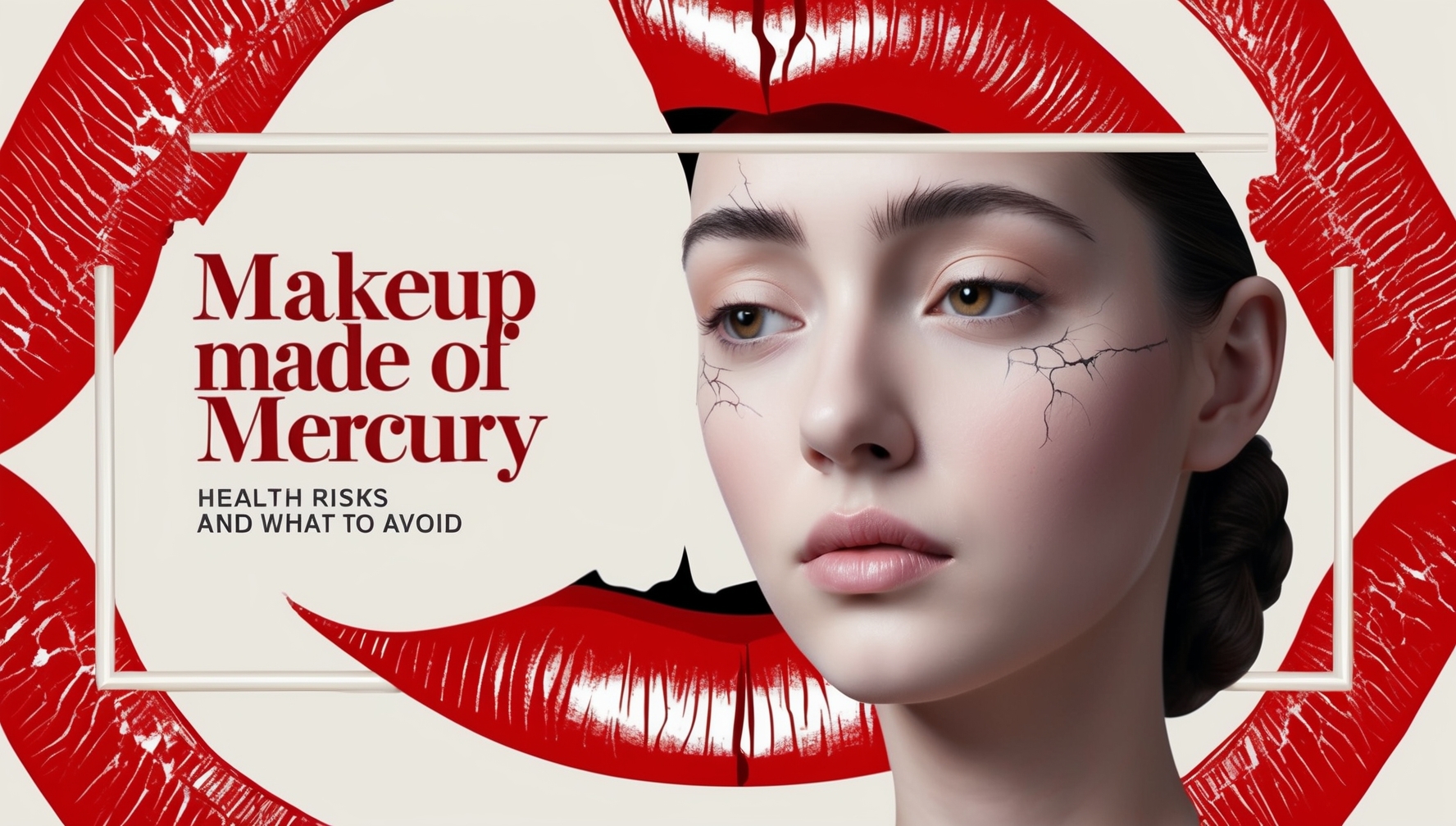Mercury in makeup is more than just a hidden danger—it’s a severe threat to your health. Understanding the risks associated with makeup made of mercury is critical. This article aims to highlight the dangers and provide a clear guide on what to avoid.
What is Mercury?
Mercury is a toxic metal used in some cosmetics to preserve products, inhibit bacterial growth, or lighten skin. Despite its effectiveness, mercury poses significant health risks. Exposure to mercury can cause skin irritation, organ damage, and even neurological issues.
Health Risks of Mercury in Makeup
1. Skin Damage
Mercury can cause various skin problems. Continuous use of mercury-laden makeup leads to skin discoloration, rashes, and peeling. This metal also impairs skin’s natural barrier, making it more susceptible to infections.
2. Neurological Issues
Long-term exposure to mercury has been linked to severe neurological problems. Symptoms include tremors, memory loss, and difficulty concentrating. These effects are especially concerning when mercury is absorbed through the skin and accumulates in the body.
3. Kidney Damage
Mercury toxicity is known to harm kidneys. Prolonged use of makeup made of mercury can lead to kidney dysfunction, including proteinuria and nephrotic syndrome. The kidneys’ role in filtering toxins is compromised, leading to dangerous health outcomes.
4. Immunotoxicity
Mercury weakens the immune system, making the body more vulnerable to diseases. Immunotoxic effects can manifest as increased susceptibility to infections, allergic reactions, and autoimmunity. For makeup users, this means higher health risks from everyday exposure.
Signs Your Makeup Contains Mercury
Identifying mercury in makeup requires vigilance. Here are some signs and ingredients to watch out for:
- Labels: Products containing terms like “mercuric chloride,” “calomel,” or “mercurio” likely contain mercury.
- Skin Reactions: If you notice burning, itching, or rashes after using a product, it may contain mercury.
- Whitening Effects: Products that claim to whiten or brighten skin quickly often contain mercury as a bleaching agent.
Common Makeup Products Containing Mercury
Mercury is more common in certain types of makeup. Avoid these products unless you are sure they are mercury-free:
- Skin Whitening Creams: Often marketed as solutions for hyperpigmentation, these creams are the most notorious for containing mercury.
- Mascara and Eyeliner: Some cheaper products may use mercury as a preservative. Always check the label before purchasing.
- Anti-Aging Creams: These creams, especially those from unregulated markets, may contain mercury to produce quick results.
Avoiding Mercury in Makeup: What to Look For
Here’s how to protect yourself from mercury exposure:
1. Read Labels Carefully
Always check the ingredients list. Avoid products with ingredients like “mercuric chloride” or any variation of “mercury.” Labels like “mercury-free” can be misleading, so know the specific terms to avoid.
2. Purchase from Reputable Brands
Stick to well-known brands that adhere to safety standards. Reputable brands are less likely to use harmful substances like mercury.
3. Opt for Organic Products
Organic or natural makeup products are generally free from toxic chemicals, including mercury. Look for certifications from trusted organizations.
4. Be Wary of Products from Unregulated Markets
Makeup from countries with lax regulations is more likely to contain mercury. Avoid buying products from street vendors or unverified online sources.
5. Check for Product Recalls
Stay updated on recalls of cosmetic products. Regulatory bodies often recall products found to contain harmful levels of mercury.
What To Do If You’ve Been Exposed
If you suspect your makeup contains mercury, here’s what you should do:
- Stop Using the Product Immediately: Discontinue use to prevent further exposure.
- Consult a Doctor: Seek medical advice, especially if you notice symptoms like rashes, tremors, or memory loss.
- Dispose of the Product Safely: Don’t throw mercury-containing products in the trash. Contact local hazardous waste disposal services to learn how to dispose of them properly.
- Report the Product: Report the product to regulatory bodies. This helps prevent others from being exposed.
Safer Alternatives to Mercury-Containing Makeup
There are safer options available that don’t compromise your health. Here’s what to look for:
1. Plant-Based Ingredients
Makeup with plant-based ingredients offers a safe alternative. These products use natural preservatives instead of toxic chemicals.
2. Hypoallergenic Products
Hypoallergenic makeup is designed for sensitive skin and is free from irritants, including mercury.
3. Certified Organic Brands
Certified organic products go through rigorous testing to ensure they’re free from harmful substances. Look for certifications like USDA Organic or ECOCERT.
4. DIY Makeup
For those concerned about the ingredients in commercial products, making your own makeup is a viable option. There are countless recipes online for everything from foundation to mascara, using ingredients like shea butter, coconut oil, and natural pigments.
Conclusion
Mercury in makeup is a silent killer. The health risks associated with makeup made of mercury far outweigh any benefits. By being informed and vigilant, you can protect yourself from these dangers and choose safer alternatives.
